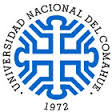Describir la evolución de la tradición es un tema frecuente en los ensayos latinoamericanos. Su tratamiento ha permitido revisar las relaciones entre literatura y cultura como así también delimitar territorios de la crítica. Pero, por otra parte, puede observarse que hay una construcción particular del ensayista al abocarse a ese tema. Este trabajo se propone abordar Las alusiones perdidas de Carlos Monsiváis desde la autofiguración del ensayista como un
lector de tradiciones. Esta particular autoconstrucción permite visualizar nuevas
representaciones en los criterios de la constitución de los cánones. Las reinterpretaciones del imaginario social giran alrededor de un análisis entre la literatura, el mercado, las influencias y la cultura a partir de un recorrido por sus historias de lecturas.
Describe the evolution of tradition is a frequent theme in Latin-American essays. Its treatment has permitted to review the relations between literature and culture, as well as to delimit territories of the critic. But, on the other hand, we can notice that the essayist makes a particular construction when he devotes to this subject. This work intends to approach Las alusiones perdidas by Carlos Monsiváis, from the self-figurations of the essayist as a reader of traditions. This particular self construction allows seeing new performances in the judgments of the canons’ constructions. Re-interpretations of social imaginary turn around the analysis between literature, market, influences and culture from a journey through their histories of readings


